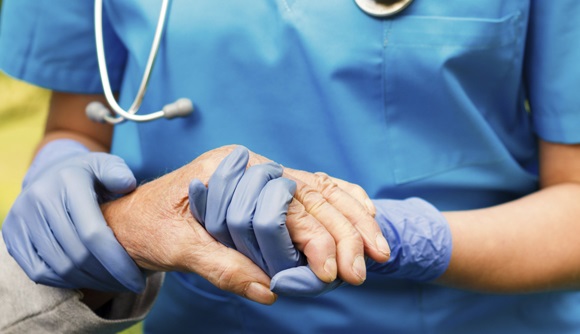More than two in five staff absences are covid-related at the NHS trust that runs three Brighton hospitals.
NHS England figures show that 1,244 staff at University Hospitals Sussex NHS Foundation Trust were off sick on Sunday 2 January – the latest date for which data is available.
Of those, 528 (42 per cent) were off because they had covid-19 or were self-isolating because of the virus.
This was a 33 per cent increase on the week before, when 396 coronavirus-related absences were recorded out of 1,202 staff absences at the hospital trust.
University Hospitals Sussex runs the Royal Sussex County Hospital, the Royal Alexandra Children’s Hospital and the Sussex Eye Hospital – all in Brighton. It also runs hospitals in Shoreham, Worthing, Chichester and Haywards Heath.
The trust employs almost 20,000 people across five main hospital sites in Sussex and has an operating budget of more than £1 billion.
The same figures showed that, across England, the number of NHS staff off work for covid-related reasons had gone up from 24,600 on Sunday 26 December to 39,100 on Sunday 2 January.
Based on monthly workforce data for September – the most recent available – the figures suggest that one in 25 NHS staff working in acute hospital trusts are absent because of the virus.
More than 120 staff were off for covid-linked reasons earlier this week at Sussex Partnership NHS Foundation Trust.
Of those, almost half were confirmed to be suffering from the virus, while dozens more at the mental health trust had symptoms or a positive test result.
Separate figures indicated that there were 54 people in the Royal Sussex and the Royal Alex with covid-19. Five or fewer were in intensive care or high dependency beds.
The fast-spreading omicron strain and the resulting pressures on hospitals in London has led to the deployment of 40 military medics and 160 general duty personnel to help plug gaps.
NHS national medical director Stephen Powis said: “Omicron means more patients to treat and fewer staff to treat them.”
Professor Powis added: “While we don’t know the full scale of the potential impact this new strain will have, it’s clear it spreads more easily and, as a result, covid cases in hospitals are the highest they’ve been since February last year – piling even more pressure on hard-working staff.”
The Royal College of Nursing’s director for England, Patricia Marquis, said that the situation wasn’t safe, adding: “Outside of healthcare, staffing shortages are closing shops and cancelling trains but nurses can’t stop helping their patients.
“Instead, they find themselves spread thinner and thinner but they can’t keep spinning plates indefinitely either.”
Matthew Taylor, chief executive of the NHS Confederation, which represents health authorities and trusts, said: “The NHS is not going to disintegrate. It’s been dealing with this crisis for two years and it will deal with it again and NHS managers will burn the midnight oil thinking about how they deploy their resources to deal with things that are most urgent.”







